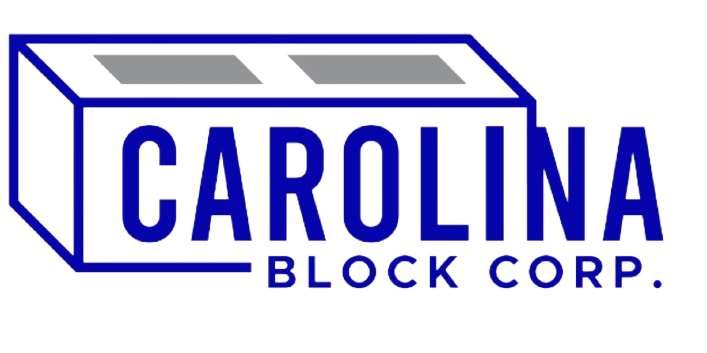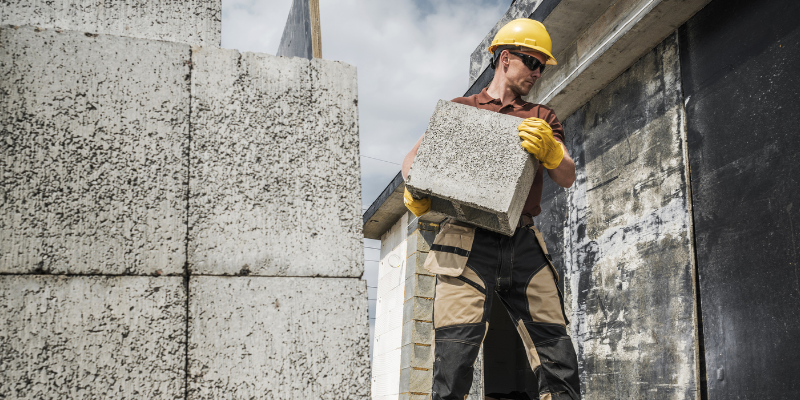When it comes to construction projects in Central Florida, one of the key building materials that cannot be overlooked is concrete blocks.
Table of Contents
ToggleThese versatile and durable blocks are essential for creating sturdy foundations, walls, and other structures.
However, finding quality concrete blocks for construction in Central Florida can be a challenge for construction contractors.
In this blog post, we will explore the various aspects of using concrete blocks in construction projects in Central Florida, including understanding the local climate’s impact on construction materials, navigating the supplier landscape, and ensuring quality while balancing budget considerations.
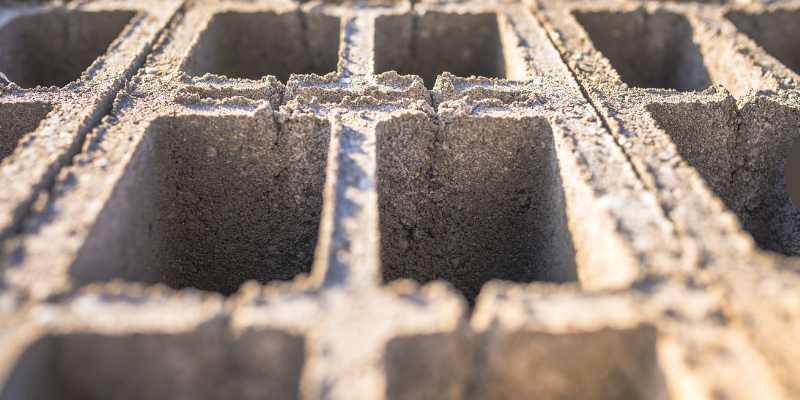
Understanding the Central Florida Climate and Its Impact on Construction Materials
The Central Florida region is characterized by a dynamic climate that presents distinct challenges for construction materials.
Summers in this area can be exceptionally hot and humid, while winters are generally mild.
However, the region is also prone to occasional heavy rainfall and the threat of hurricanes, which can bring high winds and severe weather conditions.
These climatic factors demand that construction elements, such as aggregate material, lintel, and rebar, but more especially concrete blocks, possess high resilience to moisture, temperature fluctuations, and wind forces.
For construction projects in Central Florida, selecting concrete blocks designed to endure such environmental conditions is critical.
These blocks must resist moisture penetration, which can compromise structural integrity over time, and be structurally sound to withstand high wind speeds without sustaining damage.
Additionally, the thermal properties of concrete blocks play a vital role in energy efficiency, making it imperative to choose materials that contribute to the thermal mass of buildings, helping to keep interiors cool during the hot summer months and reducing reliance on air conditioning.
Understanding these climatic impacts is essential for ensuring that construction projects in Central Florida are built to last, utilizing concrete blocks that align with the region’s specific environmental demands.
The Basics of Concrete Blocks: Types and Uses in Construction
Concrete blocks, pivotal in construction, vary in form – each suited for specific structural roles and aesthetic preferences.
Solid concrete blocks, recognized for their robustness, primarily serve in constructing load-bearing walls where strength is paramount.
These blocks ensure the stability and longevity of structures, making them a cornerstone in erecting resilient buildings.
On the other hand, hollow concrete blocks present a lighter alternative, ideal for non-load-bearing walls or partitions.
Their hollow centers not only reduce weight but also offer insulation benefits, contributing to energy-efficient building designs.
This attribute aligns perfectly with the thermal efficiency needs in Central Florida’s fluctuating climate.
Interlocking concrete blocks introduce a unique aspect to construction with their ability to lock together without mortar.
This feature simplifies installation and is particularly beneficial in creating retaining walls, landscaping features, and other outdoor structures.
The ease of use and aesthetic versatility of interlocking blocks open up creative avenues in both residential and commercial projects.
Each type of concrete block, with its distinct characteristics, provides a toolkit for builders and contractors to tailor their construction approach.
Selecting the appropriate block type is instrumental in meeting project requirements, be it for structural integrity, aesthetic appeal, or environmental sustainability.
Navigating the Supplier Landscape in Central Florida
In the quest for top-tier concrete blocks for construction in Central Florida, understanding the landscape of suppliers is paramount.
A successful project hinges on partnering with providers who not only offer a diverse selection of concrete blocks but also bring a track record of reliability and excellence.
Engaging in due diligence by researching potential suppliers, reviewing their project portfolios, and gathering feedback from previous clients can reveal invaluable insights into their capability to meet your project’s specific demands.
Exploring suppliers who are well-versed in the regional climate’s challenges ensures that the materials provided are up to the task.
It is equally important to assess the supplier’s commitment to customer service, including their flexibility in handling orders of various sizes and their responsiveness to inquiries and support requests.
Establishing a relationship with a construction material supplier who understands the intricacies of Central Florida’s construction environment can make a significant difference in smoothly navigating the complexities of your project.
Thus ensuring that the concrete blocks you select are not only of superior quality but are also delivered in a timely and efficient manner, keeping your project on schedule and within budget.
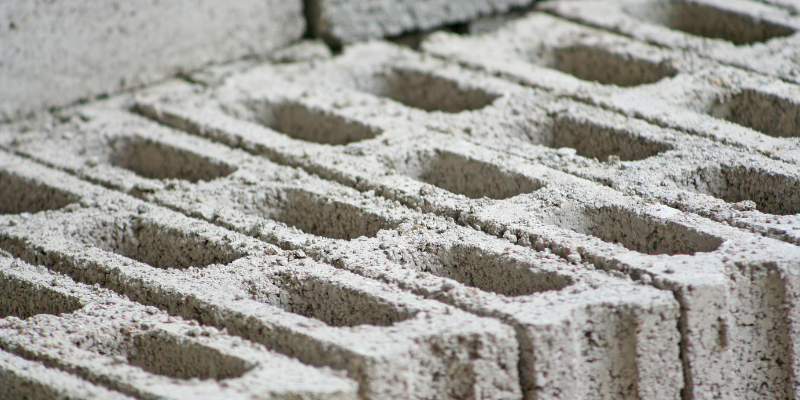
Ensuring Quality: What to Look for in Concrete Blocks
In the realm of sourcing concrete blocks for construction, prioritizing quality ensures the longevity and safety of your project.
Key indicators of high-quality concrete blocks for construction in Central Florida, include their compliance with ASTM (American Society for Testing and Materials) standards, which assess strength, density, and absorption rates.
It’s critical to scrutinize the physical integrity of the blocks; uniformity in shape, size, and texture often denotes meticulous manufacturing processes.
Check for any visible imperfections such as cracks or chips, as these can significantly undermine the structural performance of the blocks.
Moreover, reputable manufacturers often provide detailed product specifications and test results, demonstrating their commitment to quality.
Such documentation can offer assurance that the concrete blocks have undergone rigorous quality control checks.
Partnering with concrete block suppliers in Central Florida, who are transparent about their production processes and quality assurance practices can further mitigate risks associated with subpar materials.
Additionally, sourcing blocks that are specifically engineered for the environmental demands of Central Florida—capable of withstanding moisture exposure and high wind loads—will contribute to the overall resilience and durability of construction projects in the region.
By prioritizing these quality markers, contractors can secure concrete blocks that not only meet but exceed the demands of their construction projects.
Cost Considerations: Balancing Quality and Budget
Navigating the delicate balance between securing high-quality concrete blocks and adhering to budgetary constraints is a pivotal aspect of project management in the construction industry.
Contractors should actively seek out to partner with a masonry supply store that provides value for money, ensuring that affordability does not come at the expense of material integrity.
A strategic approach involves exploring bulk purchasing options or negotiating contracts that may offer discounts, thereby reducing the overall cost without compromising on quality.
It’s also beneficial to evaluate the lifecycle costs of concrete blocks, taking into account their durability and maintenance requirements.
Materials that initially seem more expensive can ultimately prove cost-effective due to their longevity and lower repair needs.
Another avenue to consider is the potential for cost-sharing partnerships with other contractors or construction firms, which can enable access to high-quality materials at a more favorable price point.
By meticulously assessing these financial strategies, contractors can achieve a cost-effective procurement of concrete blocks, ensuring the financial health of the project while maintaining the high standards necessary for construction in Central Florida’s demanding climate.
Innovative Uses of Concrete Blocks in Modern Construction
In the realm of modern construction, concrete blocks transcend their traditional roles, embracing versatility and innovation to redefine architectural and functional spaces.
Their adaptability allows for the creation of unique, aesthetically pleasing structures that merge form with function.
One emerging trend is the use of concrete blocks in creating green or living walls, where blocks serve not only as structural elements but also as planters for vegetation, enhancing the building’s sustainability and its connection with nature.
These eco-friendly constructions contribute to urban greening, improving air quality and offering thermal insulation.
Moreover, the design flexibility of concrete blocks for construction in Central Florida has paved the way for custom textures and finishes that challenge the conventional appearance of concrete.
Artistic patterns, imbued with color or embedded with recycled materials, provide a canvas for creativity and environmental consciousness in facade design.
Additionally, the thermal mass properties of concrete blocks are being harnessed in passive solar energy designs, where their ability to absorb and store heat during the day and release it at night is utilized to naturally regulate indoor temperatures, reducing the reliance on mechanical heating and cooling systems.
Such innovative applications highlight the evolving role of concrete blocks in modern construction, where their functionality is enhanced to meet both aesthetic desires and environmental stewardship objectives, marking a new era of building design that is both imaginative and sustainable.
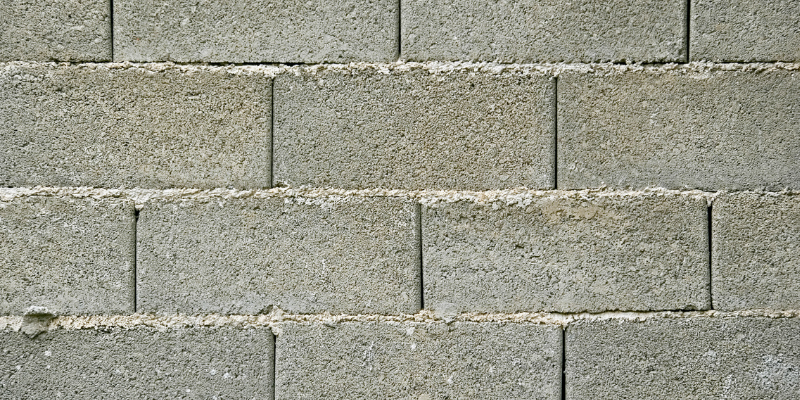
Case Studies: Successful Projects Using Concrete Blocks in Central Florida
The versatility and resilience of concrete blocks in the face of Central Florida’s challenging climate are demonstrated through a myriad of successful projects across the region.
One notable example is the construction of a multi-story educational facility designed to endure the high humidity and frequent storms characteristic of the area.
By utilizing high-density concrete blocks with enhanced moisture resistance, the project not only met but exceeded the regional building codes for wind and weather resilience, ensuring the safety and longevity of the structure.
Another exemplary project involved the development of a mixed-use commercial complex that incorporated innovative green building practices.
Here, hollow concrete blocks were strategically employed not only for their structural benefits but also for their insulation properties, significantly reducing the building’s energy consumption.
The exterior walls, constructed with specially designed concrete blocks, contributed to the complex’s modern aesthetic and environmental sustainability goals.
These case studies exemplify how concrete blocks have been effectively utilized in Central Florida to address specific construction challenges, ranging from climatic adversities to sustainability objectives.
Through careful selection and application of concrete blocks, these projects stand as testaments to the material’s adaptability and enduring quality in the face of the region’s unique demands.
Future Trends: The Evolution of Concrete Blocks in Construction
The construction industry is on the brink of a transformative era, with concrete blocks at the forefront of this change.
Innovations in manufacturing processes and material science are leading to the development of concrete blocks that are lighter, stronger, and more environmentally sustainable than ever before.
These advancements promise to revolutionize the way buildings are constructed, offering solutions that reduce carbon footprints, enhance energy efficiency, and minimize waste.
Among the most notable trends is the emergence of blocks integrated with recycled materials, significantly contributing to circular economy practices within the construction sector.
Additionally, research into the incorporation of phase change materials into concrete blocks is gaining momentum, aiming to exploit their thermal energy storage capabilities to further optimize building temperatures.
The advent of 3D printing technology also presents an exciting frontier, with potential applications in customizing block shapes and sizes for specialized construction needs, streamlining the construction process, and opening up new avenues for architectural creativity.
As these trends continue to evolve, they underscore the industry’s commitment to innovation, sustainability, and efficiency, heralding a new chapter in the utilization of concrete blocks in construction.
Overcoming Challenges: Tips for Managing Large Projects with Concrete Blocks
Managing large-scale projects that utilize concrete blocks requires meticulous planning and organization to avoid common pitfalls such as logistical delays, material shortages, and miscommunication.
One effective strategy is to establish a detailed timeline that aligns material delivery schedules with the project’s phased construction milestones, ensuring a steady supply of blocks without overloading storage capacities.
Leveraging digital tools and project management software can significantly improve inventory tracking, allowing for real-time updates on material usage and availability.
It’s also critical to maintain open lines of communication with suppliers, clearly conveying project needs and any adjustments in demand well in advance.
Regular quality checks upon the concrete blocks’ delivery can preemptively identify any issues, allowing for timely replacements or corrections without derailing the project timeline.
Collaboration and proactive planning are key in addressing the unique demands of managing large projects with concrete blocks, facilitating a smoother construction process, and minimizing potential disruptions.
Conclusion: Building Strong with Concrete Blocks in Central Florida
Securing quality concrete blocks is pivotal for the success of construction projects in Central Florida, given the unique environmental challenges of the region.
Achieving the balance between high-grade building materials and financial viability is crucial for contractors aiming to execute projects that are not only resilient but also cost-efficient.
Through a deep understanding of local climate implications, strategic supplier partnerships, and a commitment to material excellence, contractors have the opportunity to enhance the structural integrity and longevity of their projects.
Embracing innovative applications and trends in concrete block usage further allows for creative, sustainable building practices.
Ultimately, by prioritizing quality, sustainability, and adaptability in their use of concrete blocks, contractors can confidently meet the demands of modern construction in Central Florida, ensuring their projects stand the test of time and nature.
